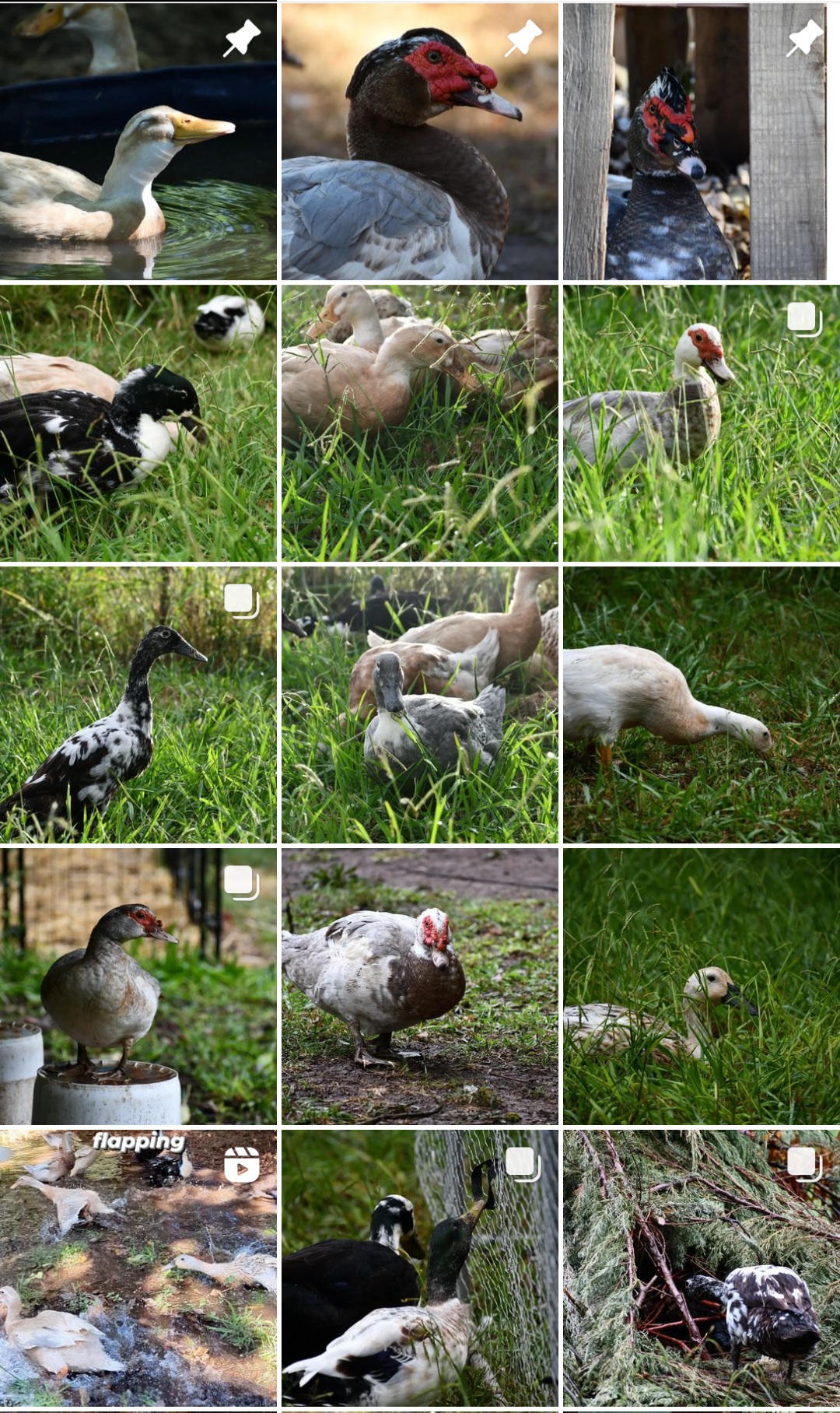Quaties Quackers about egglaying

Support Quaties Quackers and check out their instagram!
With egg bound ducks, if the egg is pinching on a nerve, the duck can show signs of limping. During the breeding season, that can easily be mistaken for a duck injured by an overzealous drake.
With my duck Lilly, she was limping one day, so we put her in our pen with Ollie, Piper and Hope to rest. Later that day, she laid an egg and was no longer limping. So it was the egg causing the issue, not an injury.
Most of my ducks, when they are egg bound, will pump their tails, pant and strain like they are trying to pass an egg.
Occasionally, these signs are harder to see, but I find eggs in their water pools. Water helps them pass the egg, and many ducks realize this, so they will spend extra time in the water trying to pass the egg.
So I start being more observant as to who could be struggling. If they are struggling with the egg, I bring them inside and give them a warm bath. I provide them extra calcium with vitamin D and monitor them till they lay an egg.
After they lay an egg I continue to administer Calcium with vitamin D for at least a week. If it is caused by them having a soft shelled egg issue, I continue the calcium till they have nice hard shells again.
I find my birds that lay more eggs are more likely to have reproductive issues. There are occasionally other ducks that have issues. These high layers are more likely to have soft shelled egg issues. This is mostly due to a lack of calcium and/or vitamin D. When they lay so many eggs, it is hard for their bodies to keep up with the calcium demands.
So I find I need to give my higher layers an extra calcium boost sometimes.
My Pekin, who laid every day, required calcium supplementation everyday to maintain thin egg shells. There are some plants that can also prevent calcium absorption, like spinach.
I have also had a couple ducks who have had vent prolapses. Both of these were my runners and they were very young when it occurred. Neither of them were breeding with the drakes at the time, nor did they have soft shelled eggs. Both which can cause a vent prolapse.
I believe they may have a genetic predisposition for this to occur. It is very time consuming to treat, but worthwhile.
If a prolapse occurs, the first thing to do is get them in the water. I have found this can reverse the prolapse on its own, depending on how severe it is.
When Hope had her prolapses, it was reversed every time in the tub.
Hazel required us to gently push the tissue back in. As the tissue healed, it eventually reversed itself as well in the tub. Hazel’s appeared to be due to some injury that occurred when she was laying an egg. She had a scab, and under it was some kind of calcified cyst. The cyst eventually fell off on its own and she no longer had issues after that. It took about a month of recovery.
During that time Hazel was brought indoors, got baths and calcium supplementation twice a day, had hydrocortisone ointment coated on her swollen vent tissue 3-4 times a day, and was encouraged to go broody to prevent egg laying. She did go broody and stopped laying eggs for the year. She got a long break from egg laying, which helped a lot.
People do suggest keeping the ducks in the dark to prevent egg laying, but that never worked for us.